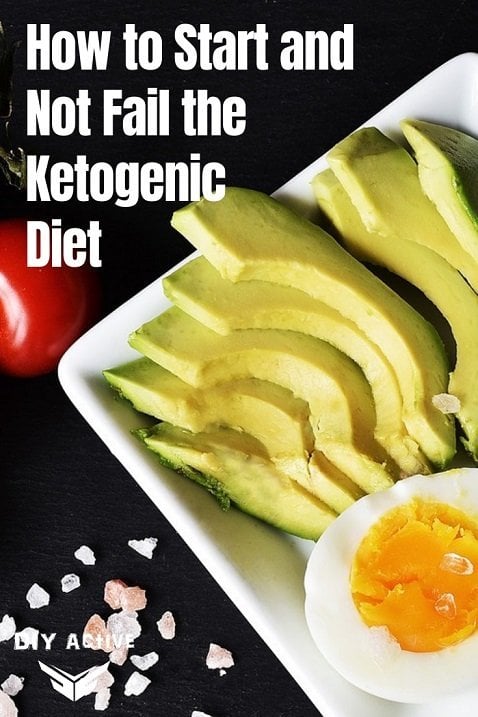Your Ketogenic Diet Guide
If you’re ready to experience the ketogenic diet, but have questions, you’re in the right place. In this guide, you’ll learn how to start a keto diet. We’ll give you a few useful tips that will make the transition into burning fat super easy and delicious. You will learn what keto supplements are and how good they are for your diet
What is a Ketogenic Diet?
You’ll also learn one simple hack that will boost your ketone production and help you get into a deeper state of ketosis. Many people on the keto diet wish they learned about this method at the start.
A ketogenic diet is full of a low-carb, high-fat nutritional plan that puts your body in a state of fat-burning ketosis.
Your body wants to use ketones, which are produced during ketosis, as a daily source of expendable energy.
Ketones are like rocket fuel for your body and brain and will provide a much more efficient fuel source. When you depend on carbs, your body produces insulin, which prevents your body from burning fat.
While glucose is the easiest path towards using energy, it is highly inefficient. Insulin is created to process the glucose in your bloodstream and to move it to your many organs.
Carbs have a much shorter energy life and make people feel sluggish and tired at the end. And, if you don’t use up all your carbs, they actually get stored as fat. Conversely, when the body does not use fat during ketosis, your metabolic reaction is to simply expel the ketones.

When in ketosis, your body stops using glucose and instead, has to work harder to find an energy reserve (all those carbs you previously stored).
Eating a high-fat diet enables your body to find and burn fat for fuel. And, as many of the fats you eat on keto, like MCTs, are never stored, you can often eat above your calorie goals and still lose fat.
Who Can Benefit From a Keto Diet?
The obvious answer is anyone who wants to lose weight or build lean muscle. The not-so-obvious answer is keto is great for people who want a healthier lifestyle or have specific health difficulties and challenges, such as diabetes or heart disease.
The ketogenic diet is a great way to reduce bad cholesterol and improve your heart health and started out as a medical diet for patients with a history of chronic seizures.
At its core, the keto diet is an inflammatory diet and can help you reduce stress in your body and restore metabolic balance.
For this reason, Keto nutrition is not useful only for people with cardiovascular disease, but it’s also extremely beneficial for individuals with type 2 diabetes.
The ketogenic diet helps to lower the insulin response and focuses on many low-GI index foods. These are foods that do not contain sugar, and that won’t spike your blood sugar levels. Stable blood sugar levels help promote a positive mood and give you more energy throughout the day.
Over 300 million people in the world have been diagnosed with type 2 diabetes, and cutting on carbs helps them stay healthy.
If you have issues with blood pressure (hypertension), which can be the cause of heart disease, stroke, kidney failure, or other life-threatening conditions, low-carb diets are a great way to supplement your Doctors recommendations. However, be sure to chat with them before making any significant lifestyle or dietary changes.
What Are The Benefits of Keto?
The overall benefits most individuals feel when they start practicing the Keto lifestyle are:
- Fat loss
- Natural control of blood sugar levels
- Mental focus and clarity
- Increased energy
- Hunger or craving suppression
- Lower bad cholesterol
- Reverse insulin resistance
- Radiant skin and clearing of acne
Everyone experiences these benefits differently, but many people report a general improvement in the quality of life when in ketosis.
What Are The Side Effects?
The side effects of ketosis may happen in the beginning when you’re transitioning between a high-carb and a low-carb regimen. The symptoms are flu-like, and they happen because your body is experiencing an electrolyte imbalance.
This period lasts differently for everyone but usually is between a few hours or days. Many people don’t experience any side effects at all, and you can avoid keto flu if you supplement with mineralized salts. You can do this by taking an exogenous ketone supplement (more on this soon).
These are the symptoms of keto flu:
- Cramps
- Headaches
- Constipation
- Heart palpitations
- Reduced physical strength
Sometimes, you might experience some of the less common side effects such as hair loss, indigestion problems, or a keto rash, but they will also go away after a few weeks or days if you add nutrient-dense foods to your diet.
If, however, the symptom persists, then you should talk to a medical professional.
How Can I Prevent the Keto Flu?
The easiest way to prevent or alleviate the side effects of the Keto flu would be to stay hydrated at all times and supplement with a low-carb electrolyte supplement or bone broth.
You should also make sure you get plenty of sleep and do light exercise (such as walking or yoga) to help your body produce more ketones.
However, the easier way by far is to take exogenous ketones to induce ketosis more rapidly. We love Konscious Keto exogenous ketones because they contain natural ingredients and the perfect blend of essential minerals and electrolytes to improve your state of ketosis.
Just add one scoop to your morning coffee or smoothie for energy and improved ketone production or to avoid keto flu.
Wrap-Up
So, after reading these keto plan diet tips, if you’re ready to give the ketogenic diet a try, and avoid the keto flu, put these tips into action.
As always, be cleared by your physician before beginning any diet or exercise program.
Good luck!